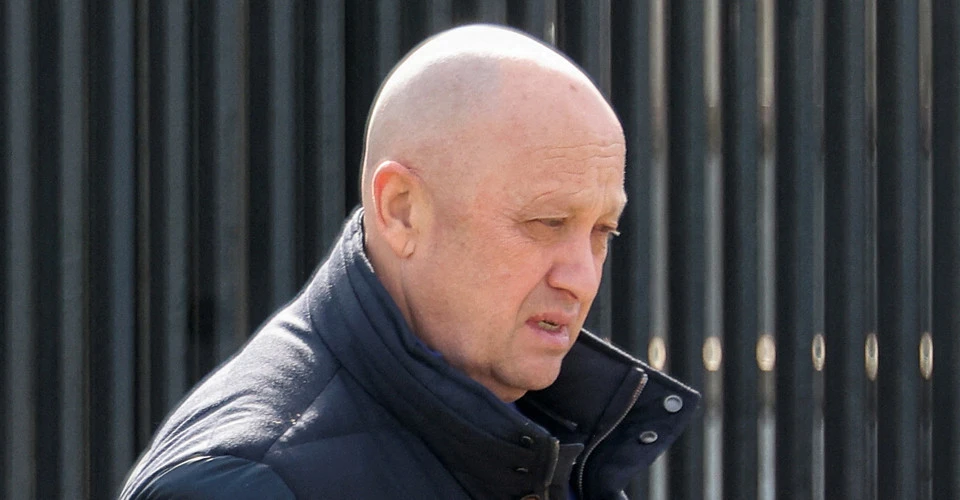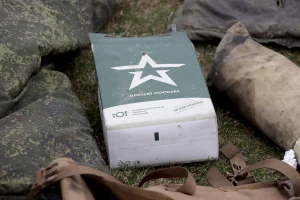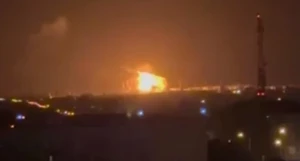
Prigozhin wanted to supervise PMC institute and get on same level as Shoigu or FSB leadership – expert Tyshkevich
The head of Wagner PMC, Yevgeny Prigozhin, wanted to gain influence and become the supervisor of all private military companies in Russia
This was stated by Igar Tyshkevych, an expert at the Ukrainian Institute for the Future, on Espreso TV.
"One of the reasons for Prigozhin's demarche is an attempt to become a 'boyar'. There are currently about 28 private military companies deployed in Russia, of which about 20 are fighting against Ukraine. The legitimisation of this institution or the creation of a separate direction in the security forces - PMCs - is relevant for Russia. Prigozhin was really trying to demonstrate that the army cannot cope with the challenges, that PMCs are needed, and that a supervisor for the development of this industry is needed. In this case, he would be on a par with the Minister of Defence or the FSB leadership in terms of influence," he said.
Tyshkevych added that there are many candidates for such supervision.
"There will be personnel changes. Right now, for Putin, the removal of Shoigu and Gerasimov is a demonstration of concessions to Prigozhin. Changes are possible in 2-3 months, but it may be an honorary retirement or another direction, with gratitude. After some time, they will create a format for the PMC, because the specifics of its activities are not just the front," the expert concluded.
The mutiny in Russia and the criminal case against Prigozhin
The conflict between Wagner PMC financier Yevgeny Prigozhin and the Russian Ministry of Defence continued for several months, but the situation escalated sharply on the evening of 23 June.
Allegedly, Russian troops launched a missile attack on the Wagner base. Yevgeny Prigozhin, the leader of the Wagner PMC, announced a "march of justice" and stated that 25,000 mercenaries were heading to Moscow after the Russian leadership refused to hand over Defense Minister Sergei Shoigu and Chief of the General Staff Valery Gerasimov.
On Saturday, June 24, in addition to Rostov-on-Don, where they initially gathered around the headquarters of the Southern Military District, the Wagner group also took control of Voronezh. Their convoys, which had diverted from the Ukrainian border, were moving towards Moscow. Military aircraft and artillery under Shoigu's control attempted to stop them. The units of Wagner PMC were last spotted in the Lipetsk region. In Moscow itself, defensive positions were established, trenches were dug, and all security forces were mobilized.
However, on the evening of June 24, the press service of the self-proclaimed President of Belarus, Alexander Lukashenko, released a statement in which the head of the Wagner PMC stated that he was ready to stop the advance of his mercenaries' military convoys, which were already approaching Moscow, and to reach an agreement with the Kremlin. Prigozhin allegedly agreed on this during a conversation with Lukashenko.
Instead, Prigozhin announced that the Wagner group had stopped their advance and returned to their field camps before reaching 200 km from Moscow. He stated, "In a day, we covered a long distance, stopping only 200 km away from Moscow. During this time, no blood was shed. However, the moment may come when blood will be spilled. Therefore, taking full responsibility, we are turning our columns around and heading back to the field camps as planned."
Subsequently, Prigozhin and all his fighters left the headquarters of Russia's Southern Military District. Russian leader Vladimir Putin promised that Prigozhin would be able to go to Belarus, and Russia would close the criminal case against him.
Read more on the events here.
The deal reached through Lukashenko's mediation is likely to eliminate the Prigozhin-led Wagner PMC in its current form, although some elements of the organization may continue to exist under the Russian Defense Ministry, according to the Institute for the Study of War.
On June 26, Russian media reported that the leader of PMC Wagner remained under investigation in the case of organizing a coup in Russia, despite the Kremlin's statements about closing the case.
On the same day, Putin gave a speech in which he offered the Wagner PMC fighters three options for future actions: join the Russian Defense Forces, go to Belarus with other PMC members, or return to their families.
Meanwhile, Wagner leader, Yevgeny Prigozhin, said that the main goal of the mutiny was "to prevent the destruction of the Wagner PMC, not to overthrow the government" and called it a "march of justice." He also claimed that the offensive on Moscow had stopped because the mercenaries "did not want to shed much blood."
- News














































